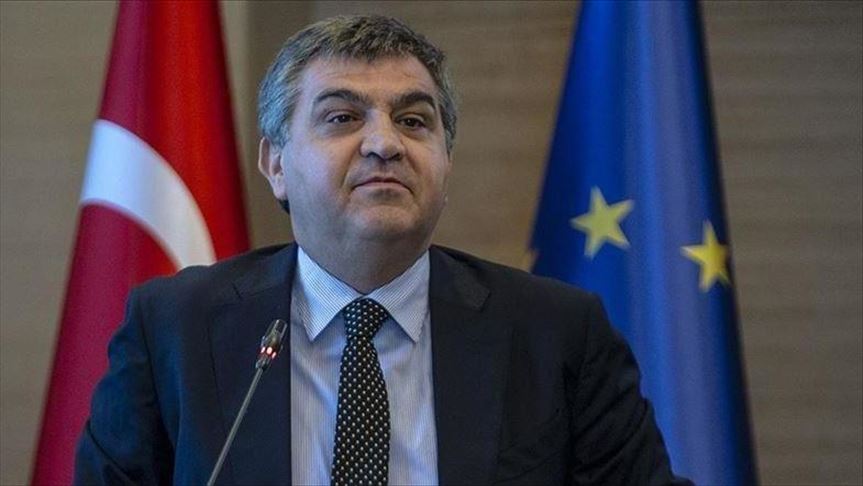
ANKARA
With the disease of Islamophobia on the rise in many European countries, the antidote might be Turkey joining the European Union, said a Turkish official.
Speaking at an Islamophobia panel held by Ankara-based think tank SETA, Faruk Kaymakci, Turkey’s deputy foreign minister and director for EU affairs, said the rise of the far-right and Islamophobia are the main challenges to the European Union today.
Citing SETA's European Islamophobia Report 2018 report, he said, “As the report suggests, there is a growing number of violations against Muslims."
“Islamophobia is a direct threat to our human rights and social cohesion in any country, so we have to act together,” he said, adding that civilian society, as well as governments, should take more responsibility.
According to Kaymakci, Turkey joining the EU would be the “antidote” to cure rising radicalism, and this would improve the integration of Muslims in the EU. “From this point of view, we have a visionary perspective.”
He added: “With Turkey’s membership, the EU can change its image… EU institutions can reach the Muslim world; otherwise the EU will be seen as an imperialist Christian club.”
He also argued that the emergence of the Daesh terror group was a significant blow to the reputation of Islam as Daesh’s attacks distorted many people’s views of the Muslim faith.
Islamophobia in Europe
Sponsored by the European Union, the report argued that growing Islamophobia damages multiculturalism and leads to security and stability woes in European countries.
The report examined 34 countries, including EU heavyweights such as Germany and France, shedding light on violent acts, offensive remarks of politicians, and the media attitude towards Muslims.
Violent acts result from the dehumanizing ideology of racism, and Muslims are increasingly becoming victims due solely to their faith, said the report.
Around 70 Islamophobic incidents were seen in Belgium, and 76% of the victims were female, it noted.
In Austria, 540 Islamophobic incidents were recorded in 2018, up from 309 in 2017 -- a rise of some 74%.
In France, 676 Islamophobic incidents were documented in 2018 versus 446 in 2017, up 52%. Among these 676 incidents, 20 involved physical attacks (3%), 568 discrimination (84%), and 88 hate speech (13%).
In Germany, there were 678 attacks on German Muslims, including 40 attacks on mosques.
Some 1,775 attacks were on refugees, 173 on asylum homes, and 95 on aid workers in Germany, according to the report.
In the Netherlands, 91% of a total of 151 incidents of religious discrimination reported to the police targeted Muslims.
Religiously motivated crimes in England and Wales shot up 415% from 2011 to 2018, the report said.
SETA is a non-profit research institute dedicated to innovative studies of national, regional, and international issues.
Anadolu Agency website contains only a portion of the news stories offered to subscribers in the AA News Broadcasting System (HAS), and in summarized form. Please contact us for subscription options.




